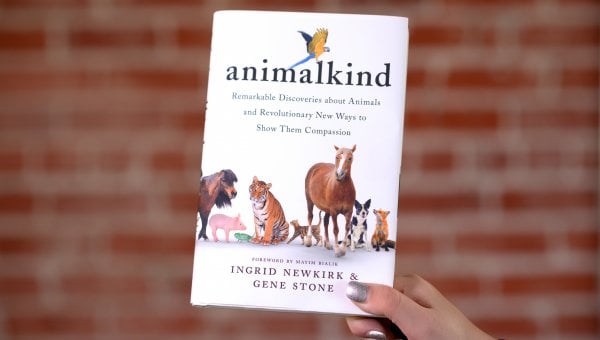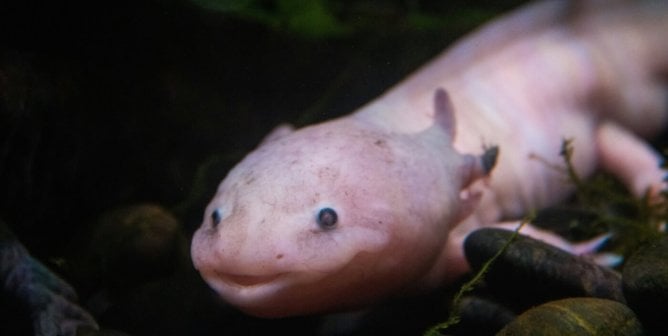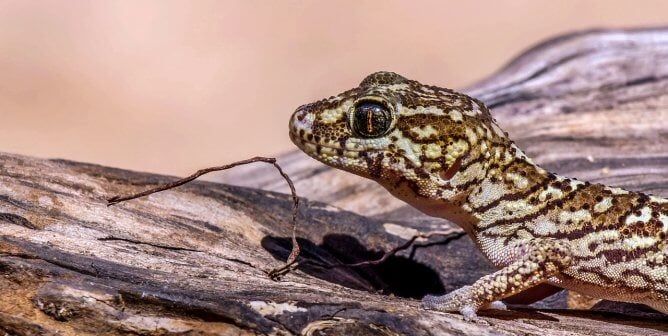PETA founder and President Ingrid Newkirk makes a strong case for sharks’ remarkableness in her most recent book, Animalkind, co-written with bestselling author Gene Stone. They “deserve better,” Animalkind contends—better than being held prisoner at SeaWorld and other marine parks and aquariums, relegated to being entertainment for spectators. They also deserve better than being unintentionally caught as “bycatch,” then discarded and left to die, and better than being left to bleed out and die after their fins are cut off for soup. These mysterious ocean dwellers deserve to be left in peace in their homes—instead, they get an undeserved bad rap.
Find out why these animals merit mad respect:
Are Sharks Dinosaurs?
Sharks are not dinosaurs—they’re actually older than dinosaurs. Not only did these impressive animals survive four major mass extinctions of life on Earth, they’ve also been around approximately 100 million years longer than trees.
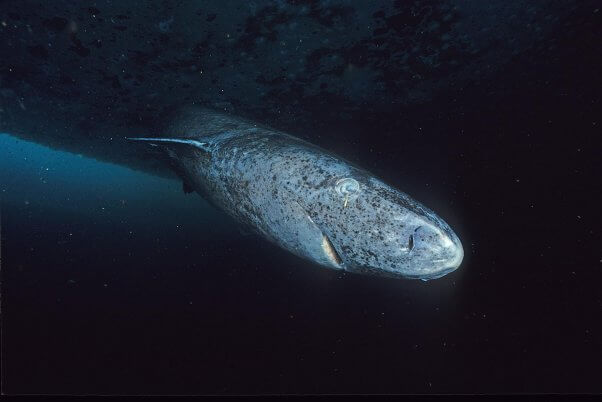
Who Were Megalodons?
Megalodons were the biggest sharks who ever lived. If you’ve ever wondered, “Just how big is a megalodon?” or “What killed them off?” or “Could one still exist?” you’re not alone. The giant shark who spawned numerous films is one of the largest fish ever to exist. Although experts don’t know exactly when the megalodon went extinct, it’s believed to have happened about 2.6 million years ago (100,000 years before our earliest Homo sapiens ancestors are believed to have walked the Earth). Megalodons were likely 50 to 60 feet long—three times longer than the largest known great white shark.
So what killed off the megalodon? Experts believe competition from the smaller but highly efficient great white shark could be to blame.
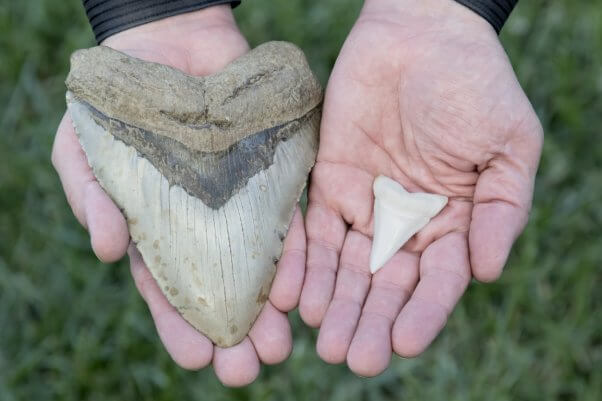
Are Sharks Fish or Mammals?
Sharks are fish. They’re Elasmobranchs—like rays and skates, sharks are cartilaginous fish, meaning that their skeletons are made of cartilage rather than bone. When many people think of sharks, great whites come to mind, but more than 440 known species of sharks actually exist today. (Many other shark species have gone extinct over time.)
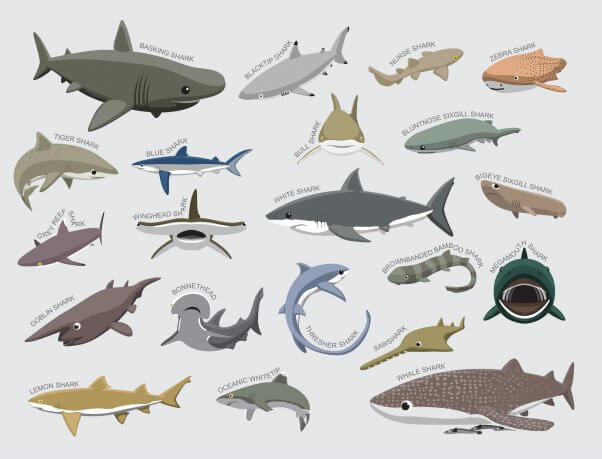
Are Sharks Dangerous?
Unlike humans, sharks are necessary carnivores—they can’t plant vegetables, bake bread, or cruise supermarkets. However, that doesn’t mean they’re vying for a taste of surfer or diver. So what do sharks eat? Mostly smaller fish and invertebrates—although the bonnethead shark (the smallest member of the hammerhead family) is vegetarian, munching mostly on seagrass.
Great white sharks, found in all the world’s oceans, are depicted as ferocious human-eaters in films like Jaws. In reality, great white attacks on humans are exceptionally rare—when they do occur, it’s because the fish are acting in self-defense, protecting themselves and their home.
‘Shark-Infested Waters’ … You Mean, Sharks’ Home?
It’s humans whose flesh addiction kills more than 100 million sharks and billions of other sea animals annually. Comparatively, 2019 saw five shark-related human fatalities—statistically, you’re more likely to be killed by a popping champagne cork than by a shark attack.
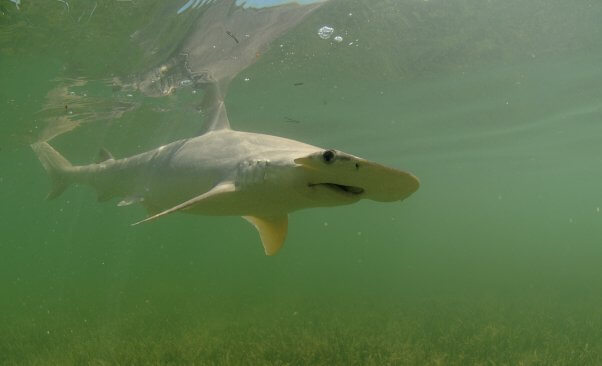
Are Sharks Social?
Until recently, great white sharks were thought to be territorial fish who stuck close to coastal waters, only traveling a few hundred miles here and there to follow the seal population. However, a 2009 study published in the journal Proceedings of the Royal Society B proved that great whites are actually transoceanic sharks, routinely traversing the most remote waters on the planet.
Great whites work together to obtain food, too, and mind their manners while eating. Biologist Peter Best once saw several great whites working together to move the carcass of a partially beached whale into deeper waters so that they could all eat it. Caribbean reef sharks also follow a pecking order when eating, allowing the biggest shark to eat first.
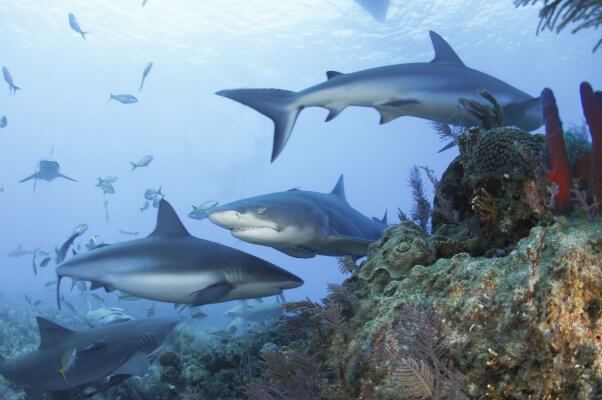
Who Are Sharks’ Biggest Predators?
Sharks may have survived several mass extinctions, and they may be older than dinosaurs and trees, but they also may succumb to the deadliest predator of them all: humans.
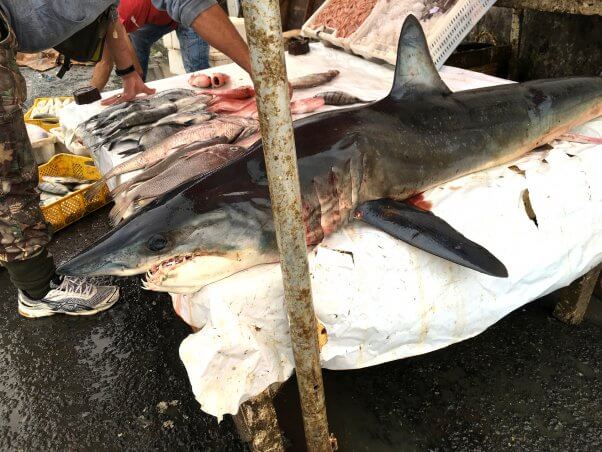
What Is Shark Finning?
Shark finning entails dragging sharks to the surface, hacking their fins off, and throwing them back into the ocean to die slowly from their injuries, stress, or suffocation. The demand for shark fin soup has resulted in overfishing and dwindling shark populations. If you’re wondering, “Is shark finning legal in the U.S.?”—the answer is complicated. Although the act of shark finning is illegal in U.S. waters, shark fins can be bought and sold in certain U.S. states.
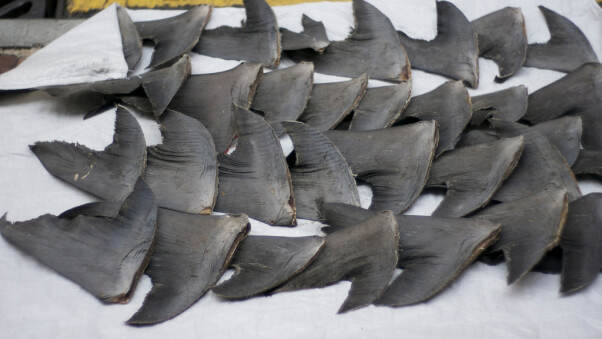
What Is ‘Bycatch’?
“Bycatch” (a speciesist term that implies that one animal should die and another should be released back into the ocean, even though all animals deserve to live peacefully in their homes) occurs when animals become entangled in fishing nets or hooked by long lines. Once anglers realize that they’re not the specific species of fish that they were initially looking for, the animals are thrown overboard. If they’re not already dead, they fall victim to swarming birds or slowly bleed to death in the water. Sharks are often unintentionally caught as bycatch along with dolphins, whales, and sea turtles. That means that if you eat fish, you’re contributing to the slaughter of sharks.
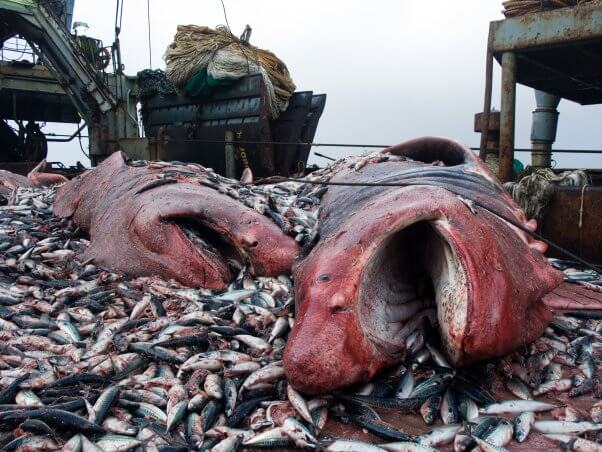
Are There Sharks at SeaWorld?
There are many reasons why no sharks should ever be imprisoned at SeaWorld—or any other park or aquarium—but that hasn’t stopped the abusement park from holding the giant fish captive. At SeaWorld parks across the U.S., sharks are confined to small tanks that are a fraction of the size of their natural habitat, which disrupts their exceptional sensory abilities. Noisy crowds likely confuse and agitate them even further. In Orlando, tourists can even pay to swim with sharks inside cramped tanks.
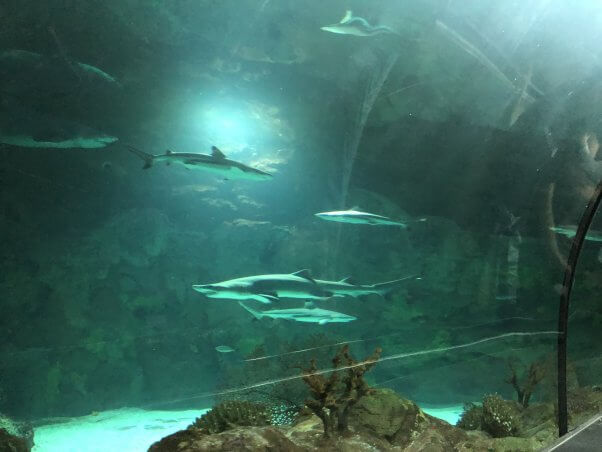
Sharks aren’t protected under the federal Animal Welfare Act, meaning that their deaths at SeaWorld and other shady, exploitive operations aren’t even tracked.
How Can We Help Sharks?
You can help sharks and all other animals imprisoned by SeaWorld by refusing to support the abusement park.
Want to Learn More About Other Animals?
Whether you order a digital, physical, or audiobook version of Animalkind, you’ll have the information needed to see sharks and other animals in a more compassionate light and you’ll learn simple ways to help dismantle speciesism. Get a copy and discover for yourself why our fellow Earthlings deserve our respect:
As an Amazon Associate, PETA earns from qualifying purchases. If you buy something after clicking the Amazon links on this page, a percentage of the qualifying purchase will be donated to PETA and help us protect more animals from exploitation.


